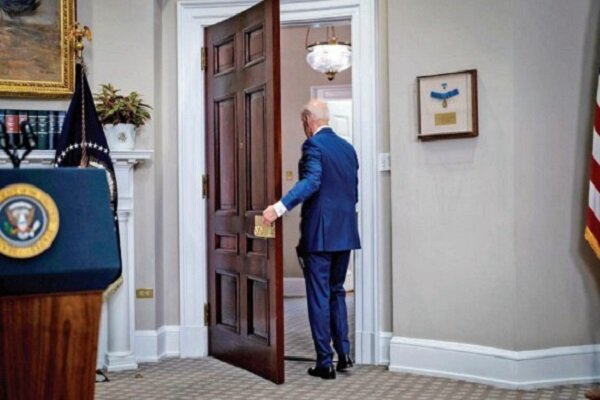The document refers to the draft agreement prepared last autumn to revive the Joint Comprehensive Plan of Action (JCPOA) which was a deal struck in 2015 between Iran and the 5+1 group of countries. The deal was thrown into disarray when in 2018 the US unilaterally withdrew from it.
Hussein Amir-Abdollahian, speaking during a gathering with university professors, added that though the Iranian government has never turned its back on negotiations, it does not intend to tie Iran’s economy to such talks either. He said the country is actively trying to neutralize sanctions while pursuing diplomacy at the same time. He mentioned some of Iran’s moves in connection to its main approach, including its recent accession to the Shanghai Cooperation Organization and BRICS.
“Iran's membership in the Shanghai Cooperation Organization and the BRICS group is a significant step that demonstrates the large capacities of the Islamic Republic of Iran among emerging global economies,” highlighted the foreign minister.
The top diplomat also rejected reports that Iran and the US have reached a temporary agreement. “The retrieval of Iran’s assets from South Korea and the UK is not part of a temporary agreement,” he said.
In another part of his speech, Amir-Abdollahian mentioned the Raeisi administration’s emphasis on deepening regional cooperation and expansion of ties with neighboring countries. “We are planning to expand relations with Saudi Arabia and other regional countries,” he stressed.
Several Iranian officials have expressed readiness to return to negotiations to revive the 2015 nuclear deal. The last round of talks between Iran, the remaining JCPOA signatories, and the US wrapped up last September without coming to fruition.
An Iranian deputy foreign minister on Monday said the parties can return to the negotiating table if the US and its Western allies act realistically and avoid repeating the mistakes of the past. Ali Baqeri stressed that Iran has never obstructed the path of diplomacy. “The administration has never blocked the road to diplomacy, negotiations, and efforts to fulfill the national interests to achieve a balanced agreement,” he said.
Despite efforts by Iran and the remaining signatories to the JCPOA, it seems that the Biden administration has not been capable of making the decision to return to the deal, mainly due to bipartisan hostilities that have been growing inside the US.
Biden received scathing criticism from the Republicans after he decided to de-escalate tensions with Iran and allow the transfer of $6bn in frozen Iranian funds from South Korea to Qatar. The money, as reported by American media, will be used for humanitarian purposes.
Even extensive efforts by American media outlets did not manage to ease the ire of the Republicans. Donald Trump, the Republican president who left the agreement, believed his predecessor Barak Obama, a Democrat, “lost big time” by striking the deal with Iran. Trump’s so-called “maximum pressure” campaign against Iran has also received censure from Democrats.
With polarization in the United States being at an all-time high, it seems that no American president, including Biden, has the real authority to return to the JCPOA. Bipartisanship seems to have plagued every aspect of American politics including its foreign policy. Politicians in the US cannot reach a consensus, whether it be on Iran, Russia, China, or even the country’s allies.
By Mehran Shamsuddin
First published in Tehran Times






Leave a Reply